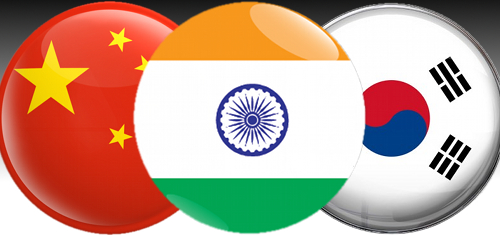 India is set to surpass the United States as the world’s second largest internet market.
India is set to surpass the United States as the world’s second largest internet market.
A new report by market researchers IMRB and the Internet & Mobile Association of India (MAI) says there will be 402m internet users in India by December, a 49% increase from the previous year. The number is all the more staggering when you consider that it represents just one-third of India’s 1.2b residents, leaving lots of room for further growth.
Men make up 71% of India’s online community, with a higher ratio (88%) in rural areas and lower (62%) in urban centers. However, the gender gap is closing, as the growth of new internet users is higher for women (39%) than men (28%).
Over two-thirds (69%) of users now access the internet on a daily basis, a 60% year-on-year improvement. India’s eight largest urban areas account for nearly one-third (31%) of web users, and while urban usage still outpaces that of rural areas, rural growth is rising at a faster pace (77%) than in cities (50%).
Around 87% of India’s internet users access the web via mobile devices, although the report didn’t indicate how many of these were mobile-only users.
HULK, ER, CHINA SMASH!
India’s growth is impressive, but it has a long way to go to catch China, the internet’s 800 lb. gorilla. The World Bank says China has over 650m internet users, but a report this week by the China Center for Information Industry Development claimed that the country’s mobile internet users alone have now topped 875m.
Whatever the figure, it’s likely to keep growing as digital infrastructure improves. In September, China’s Ministry of Industry and Information Technology said it had instructed telecom firms to boost average broadband speeds in major municipalities and provincial capitals from 9 megabytes per second (Mbps) to 20 Mbps, while other urban areas will go from 7 Mbps to 10 Mbps.
Sadly, China’s massive internet population has to choose from a limited palette of online options. Freedom House’s latest Freedom on the Net report ranked China dead last in terms of a user’s ability to choose what sites to visit, behind even such bastions of openness as Syria, Iran and Saudi Arabia. Small wonder that online gambling sites have to disguise themselves as corporate email servers in order to reach their customers.
SOUTH KOREA’S ONLINE HOODLUMS
South Korea ranked a respectable 21st on the Freedom House chart but openness comes at a cost, particularly for young and impressionable netizens. The Korea National Police Agency (KNPA) recently declared that teenagers and twenty-somethings accounted for over 60% of the country’s major cybercrimes, which include online gambling, fraud, scams and uploading pornography.
Since March, the KNPA says they documented 26,808 cyber criminals, 178 of whom were arrested. Some 3,741 individuals – 87% of them male – were found to have engaged in illegal online gambling and more are expected before the KNPA’s special crackdown on online gambling comes to a close on Feb. 9, 2016. So our advice to South Korean youth would be to save your Xmas money and gamble after Valentine’s Day when it’s safer.






